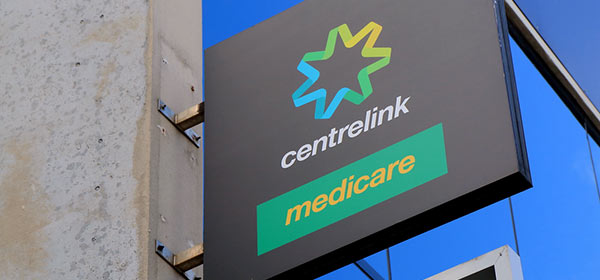The public backlash over the flawed debt-recovery program has lead to the launch of strike action by Centrelink staff and will cause delays for customers.
The Community and Public Sector Union (CPSU) advised the Department of Human Services on Friday that its members would be commencing two weeks of rolling industrial action, to begin on 13 February.
The debt-recovery program, which was launched last year, has seen 170,000 customers issued with notices of potential overpayments, identified by cross-referencing data from the Australian Tax Office and Centrelink. Customers have been asked to provide further information, including pay slips, sometimes dating back six years, within a limited timeframe. If they are not able to provide this information, a debt-recovery notice is issued. However, it has been found that some of the data matching has been flawed. In January this year, the system was amended to enable customers to request an internal review before debt recovery processes were commenced.
In a statement, Department of Human Services spokesman, Hank Jongen said, “We are asking customers to use the self-services options available through MyGov and the Centrelink, Medicare and Child Support mobile apps,” he said.
“Of course, anyone who needs to speak to us can phone or visit, they just need to know that this may take longer due to the industrial action.
Assuring that customer payments would not be delayed, Mr Jongen also said, that the industrial action would not have an impact customer payments.
“We appreciate our customer’s patience during this time and want to reassure them that we are working hard to minimise disruption to the services they need.”
While the action is in direct response to the backlash its members have faced in dealing with the debt-recovery program, the CPSU has been at loggerheads with the department for two years over pay and conditions.
Similar strike action was taken in December, with no customer payments affected. This time around, it is expected that delays will be experienced at Centrelink offices and via call centres, although it’s understood that staff dealing with robo-debt calls will not be striking.
CPSU national secretary Nadine Flood said the budget cuts and resulting 5000 job losses made it difficult for staff across Centrelink, Medicare and Child Support agencies to provide the necessary service to customers.
“Our members are doing this because they care about the quality of the services they provide, which is why workers dealing with sensitive clients such as those being dragged through the robo-debt crisis will not be taking industrial action,” she said.
“There are 34,000 hardworking Medicare, Centrelink and Child Support staff who’ve gone more than three years without a pay rise as they’ve fought for a new enterprise agreement.”
Furthermore, CPSU assistant secretary Michael Tull said last month that it was “perfect storm” which had lead to public servants struggling to deal with the public backlash.
The strikes will take place on 13, 15, 17, 20, 22 and 24 February.
Read more at ABC.net.au
Opinion: Time for those responsible to face the music
Sometimes in frustration it’s easy to forget that Centrelink staff are simply doing a job – applying rules and managing processes that have often been thrust upon them with little or no notice. This frustration should ultimately be focused on Minister for Human Services Alan Tudge, Minister for Social Services Christian Porter or indeed, the Prime Minster himself. But no, sadly these people very rarely ever come face-to-face with anyone who has queued for hours in a Centrelink office only to be told that their payments are being reduced or stopped due to some bureaucratic process.
While not everyone who visits a Centrelink office is down on their luck, the reality is that they are often stressed emotionally or financially and may struggle to understand the rules and legislation that is being quoted as reason for them not to receive payment.
Staff at Centrelink offices and those taking calls have to deal with some truly harrowing cases and, quite possibly, if it was up to them they would simply bend or wave the rules, but it’s not.
The reduction of staff in Centrelink offices and call centres only adds to the problem and coupled with the fact that they feel they are not being paid fairly for what they do, it’s little wonder that they have grabbed this moment of weakness in the system to make their point well and truly heard.
Ultimately, however, it’s the customer who is going to suffer. For those who can’t access the self-service options through MyGov and for whom visiting an office or speaking to someone on the phone is the only hope of having their issued resolved, these strikes won’t help.
What do you think? Do you agree with Centrelink staff striking as a response to the debt-recovery program? Do you think they’re paid to do a job and should simply get on with it? Are you likely to be affected by strike action?
Related articles:
Centrelink system flaws were known
Is Minister Tudge fudging?
New wave of Centrelink strikes

